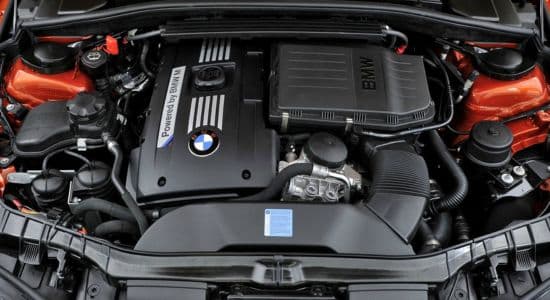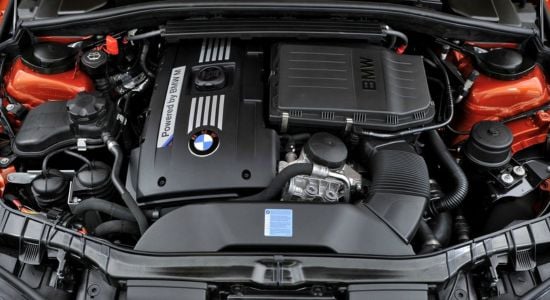BMW Engine Lineup: The Evolution and Diversity of Bavarian Powerplants

BMW has built its legendary reputation not just on razor-sharp handling but on the relentless pursuit of engineering excellence in its internal combustion engines. From the silky inline-sixes that defined the brand to the latest modular power units pushing the boundaries of efficiency and performance, BMW’s ICE lineup remains one of the most diverse and sophisticated in the automotive world.
The Iconic Naturally Aspirated Era
The foundation of BMW’s engine identity was laid with naturally aspirated inline-six cylinders. The M30 “big six” introduced in 1968 and produced for over three decades became a symbol of durability and smoothness. Its successor, the M50 and later M52 families, brought innovations like VANOS variable valve timing in 1992, marking the first major leap in responsive power delivery without forced induction.
The pinnacle of naturally aspirated development came with the S54 in the E46 M3 – a 3.2-liter masterpiece producing 338 hp at an astonishing 7900 rpm with individual throttle bodies, double VANOS, and an 11.5:1 compression ratio. Even today, the S54 is revered as one of the greatest road-car engines ever built.
Parallel to this, the S65 V8 in the E90/E92 M3 and the S85 V10 in the E60 M5 represented the absolute zenith of naturally aspirated performance, with the V10 delivering 500 hp at 7750 rpm and a sound that remains unmatched.
The TwinPower Turbo Revolution

The shift to widespread turbocharging began in earnest with the N54 in 2006 – the first twin-turbo inline-six since the 1980s. Featuring piezo direct injection, a single-piece cylinder head, and twin low-inertia turbos, the 3.0-liter N54 produced up to 335 hp in the 335i and became the cornerstone of the 1M Coupé legend.
The successor N55 introduced the revolutionary Valvetronic fully variable valve lift system combined with a single twin-scroll turbo, dramatically improving throttle response and fuel efficiency while maintaining 300–320 hp across numerous models.
The Modular B-Series Architecture
In 2014, BMW launched the groundbreaking modular engine family designated with the “B” prefix (B38, B48, B58, B57, etc.). All engines share identical cylinder spacing (91 mm), bore (82 mm for most petrol units), and many common components, allowing unprecedented production flexibility.
The B58 3.0-liter inline-six turbo, introduced in the 2015 340i and later awarded Ward’s 10 Best Engines multiple times, redefined expectations with 335–382 hp, exceptional smoothness, and closed-deck block design for extreme tuning potential. Found in everything from the M240i to the Toyota Supra and current M3/M4 derivatives (detuned S58), the B58 has become the spiritual successor to the naturally aspirated S54 in the enthusiast community.
High-Performance S-Series Derivatives
The current king of BMW’s gasoline engines is the S58 – a heavily reworked B58 with a closed-deck block, forged crankshaft, 3D-printed cylinder head core, dual injection (direct + port), and twin mono-scroll turbos. In the G80 M3 and G82 M4 Competition, it produces 503 hp (543 hp in CS versions), while the latest M4 CS and M3 CS push beyond 550 hp in road-legal form.
Diesel Excellence: From M21 to B57 Quad-Turbo
BMW’s commitment to diesel performance is unmatched among premium manufacturers. The latest evolution is the B57 family, ranging from mild-hybrid single-turbo 2.0-liter units to the mind-bending quad-turbo 3.0-liter inline-six in the discontinued M550d and G05 X5 M50d, producing 400 hp and a monstrous 760 Nm. Using sophisticated staged turbocharging, these engines delivered supercar acceleration while achieving real-world fuel economy in the high 30s mpg (UK).
The Compact Three- and Four-Cylinder Range
The B38 1.5-liter three-cylinder turbo powers entry-level models and MINI derivatives. Despite its modest displacement, advanced technologies like a crankshaft offset and balance shafts make it remarkably refined.
The B48 2.0-liter four-cylinder, available from 140 hp to over 300 hp in the M135i and X2 M35i, has become BMW’s volume engine, proving that four cylinders can deliver engaging performance when engineered properly.
Hybrid Integration and Mild-Hybrid Technology
Modern BMW engines increasingly incorporate 48-volt mild-hybrid systems. The latest B58TU2 and B57TU2 variants feature enhanced energy recuperation and electric boost functionality, adding up to 11 hp while significantly reducing real-world fuel consumption and emissions.
Racing DNA: From Formula 1 Turbos to DTM Dominators
BMW’s road engines have always benefited from motorsport development. The 1.5-liter turbo F1 engine that powered Nelson Piquet to the 1983 championship produced over 1000 hp in qualifying trim. More recently, the P48 and P66 DTM engines based on production four-cylinder architecture dominated the series.
Current BMW Production Engines (November 2025)
B38 – 1.5L I3 turbo (75–178 hp)
B48 – 2.0L I4 turbo (140–382 hp)
B58 – 3.0L I6 turbo (335–400+ hp)
S58 – 3.0L high-performance I6 twin-turbo (473–543+ hp)
B57 – 3.0L I6 diesel (single/dual/triple/quad-turbo, 190–400 hp)
N74 – 6.6L V12 twin-turbo (601 hp – M760i Final V12)
While electrification accelerates, BMW continues refining its internal combustion engines with upcoming updates focusing on synthetic fuel compatibility and further efficiency gains. The diversity and technical sophistication of BMW’s current engine portfolio ensure that the “Ultimate Driving Machine” slogan remains deeply rooted in exceptional powertrain engineering.
